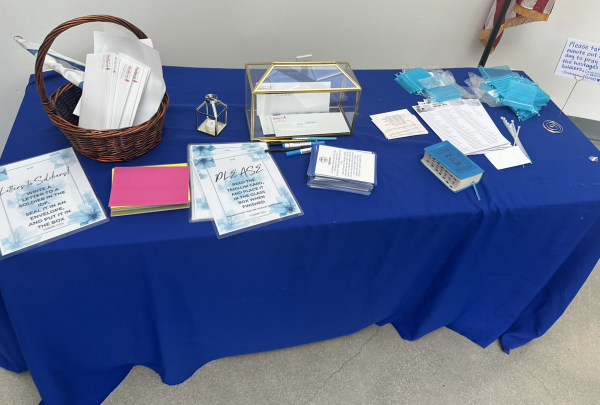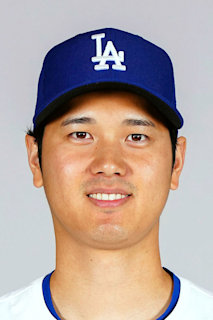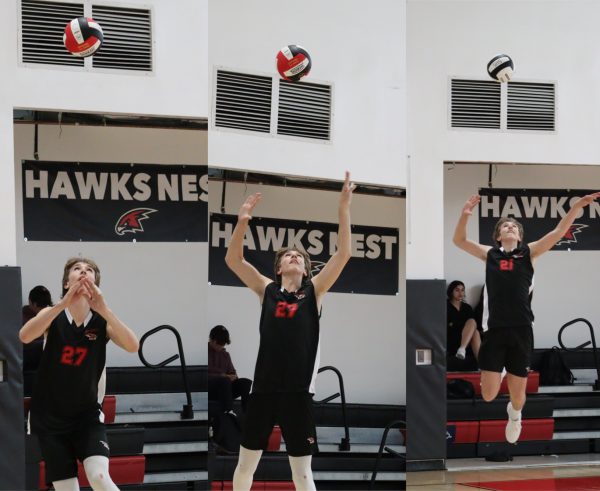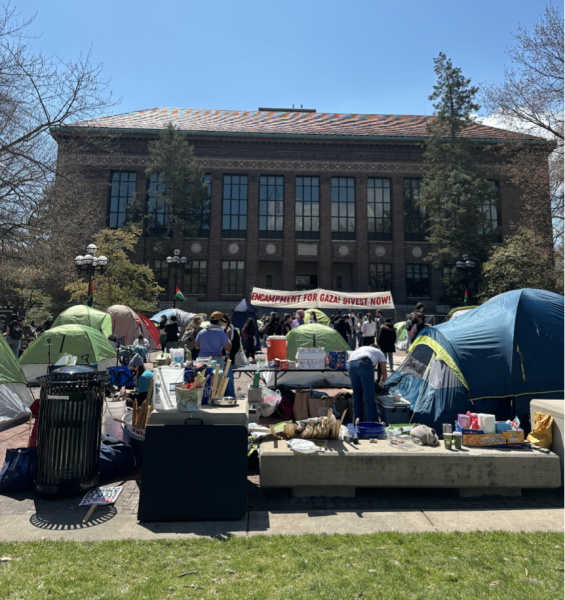Student journalists make history at JSPA conference
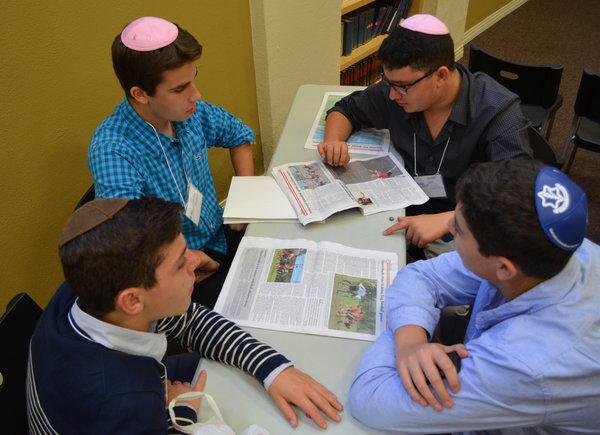
Student journalists from the Boiling Point, and the JCHS Observer debrief together after a series of workshops at the first ever JSPA convention at Bnai David Judea.
November 14, 2013
By Sarah Soroudi, Editor-in-Chief
Twenty-five students crowded around a dinner-size table in the Beit Midrash at Bnai David-Judea, their eyes fixed on a panel of students from Harvard-Westlake’s newspaper, The Chronicle.
Using three laptops and a projector, four Chronicle editors described the various forms their newspaper takes besides print and answered questions about their website, video coverage, Facebook and even equipment they use.
“Since the Harvard-Westlake paper is so established, it was helpful to get their perspective on how they run their paper,” said Goldie Fields, Managing Editor of the Boiling Point.
“And since they are our peers and not professionals, they made everything seem possible to get done when balancing work with school. It made me super-motivated to bring the paper to a whole higher level.”
The multi-media demonstration on Friday morning, Oct. 25, was among the most memorable of 18 different workshops offered at the first-ever Jewish high school journalism convention, hosted by the Jewish Scholastic Press Association, or JSPA, Oct. 24 -27.
The conference was organized by Shalhevet’s journalism advisor, Mrs. Joelle Keene, and cosponsored by Shalhevet and the American Jewish Press Association (AJPA), an organization of Jewish papers and journalists from around the U.S. and Canada.
In addition to 19 journalists from The Boiling Point and the editor-in-chief of YULA’s Pink Panther, attendees included four editors from SAR Academy’s The Buzz in Riverdale, N.Y., and three editors of The Observer of Jewish Community High School of the Bay in San Francisco. The journalists from out of town stayed with three Shalhevet families.
Many brought articles they’d written to submit to a first-ever JSPA contest, which was judged by reporters of the Jewish Journal of Greater Los Angeles. Six awards were given out — five in various categories, and a Grand Prize chosen from among the winners.
Boiling Point reporters won in three of the first-prize categories. Senior Tamar Willis tied with SAR’s Deena Nerwen in the category of Reporting on Current Events Involving Israel or Judaism. Juniors Mati Hurwitz and Rachel Spronz won in the categories of Reporting on the Jewish Religion and Layout in Jewish Journalism, respectively.
Deena Nerwen won the first-ever JSPA Grand Prize for Jewish Journalism, an internship at the Jewish Journal for next summer or a JSPA “strong recommendation” for an internship at the Jewish paper of her choice. Her winning article, selected by Gary Rosenblatt of the New York Jewish Week and AJPA president Marshall Weiss, was about the Tav Hayosher kosher certification for businesses meeting standards for how they treat their employees.
On Sunday morning of the conference, Deena accepted her prize with a surprised smile.
“It was kind of crazy to win the award,” said Deena Nerwen. “The conference itself taught me a lot and was enough of a reward in itself. Still, it was a huge honor to know that such distinguished judges had read my article and liked it.”
In addition to sponsoring the conference, Shalhevet also contributed several speakers – among them, alumni Zev Hurwitz ’11 and Rachel Lester ‘12. Rachel gave two workshops on layout, which one student later called “life-changing” in conference evaluations. Zev gave two popular workshops on campus journalism, one being about the challenges of covering Israel and Jewish issues.
A highlight for Deena Nerwen was the talk by Jennifer Medina, a national correspondent for the New York Times who is observant herself.
“Her session was really encouraging because because she made it seem entirely possible to be both a religious Jew and a reporter,” Deena said.
On Shabbat, students took a break from workshops and attended services at Bnai David, then went downstairs for dinner, socializing and discussing the days’ topics. On Friday night they heard a keynote address from Mr. Rosenblatt about his coverage sexual abuse by a rabbi in New York City, and on Saturday afternoon Mrs. Keene led a Kohlbergian moral dilemma discussion on coverage of last spring’s scandal involving Doheny Kosher Meats.
Mrs. Keene said she formed the JSPA other high school journalism conferences conflict with Shabbat and holidays, and to look at journalism through a Jewish lens.
“Judaism is just different,” Mrs. Keene said. “It’s its own thing, it has its own world view. When you’re religious and you want to do things with God and Torah in mind, you need time and space to consider what that means, whether it’s in journalism or politics or cooking or anything else.”
Marshall Weiss, the AJPA president, thought that aspect of the conference had succeeded.
“It was clear that the students who participated in the conference were sensitive to the ethical dilemmas inherent in Jewish journalism,” said Mr. Weiss, who attended the entire event.
Overall, students felt the conference taught them a lot and motivated them to improve their papers.
“The entire atmosphere of the conference only made me want to dive further into my own school newspaper,” said Mika Aloni, a junior who writes for the JCHSB Observer.
“I’ve already met with my paper’s layout editors to put these tips to use,” said Ricki Heicklen, editor-in-chief of The Buzz, the following week. “And we will have a new and improved center spread for our next issue.”
Deputy Editor-in-Chief Tamar Willis contributed to this story.








